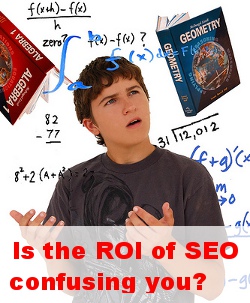
Making friends is fun. Some of them just touch us for a moment, and some of them last a lifetime. Social media has changed a lot of our communications, and sometimes for the better. Usually it is for the better, but not always.
Over the past decade and a half or so, I have acquired a lot of contacts online. I try to keep a sense of closeness with them, and I still enjoy the friendship of many old friends from the once-popular AOL and Yahoo! social networks. In fact, one in particular stands out. We met ten years ago and became close as members of a Yahoo! chat group that got together every Friday night. We were married eight and a half years ago, built multiple successful companies together, and have three darling children now. A sad and frightening thought that occurs to me is whether with today’s astonishing level of social media static and frenzy to reach so many people, whether she would have even heard me.
What Happens When Social Media Gets Too Noisy?
I really care about my social networks, and they bring a lot into my life. I enjoy reconnecting with old friends from way back, and reminiscing about our crazy times as kids. I enjoy the many business relationships that I have built through social networking. I enjoy meeting new people who can make hot coffee shoot from my nose as I laugh at their uncanny wit, or who make me feel more love and compassion with stories of their lives. I suspect that you can relate to this on some level.
There is scarcely a day when I do not receive something that I hold dear, if only for a moment, that has come to me by way of my social networks. I think this is true for many of us, or otherwise social networks would likely lose much of their audience. We would lose much of our audience of friends who bring smiles with their presence.
In the past few years, the world has created a lot of “friends”, “followers”, “connections”, and etcetera. I guess that made it feel cozier when we call people “friends”, even if they are just another random person willing to check out our lives in exchange for checking out their lives. After all, by having “friends”, it is pretty easy to feel as if people like you, or at least pay attention to you. They express it every time they “like”, “comment”, “share”, “retweet”, and etcetera.
Social media satisfies our need to connect with others. Sometimes it just satisfies our need to be heard. It makes us feel popular, and it validates us. It is often something emotional, even for those who do not acknowledge it as emotion. We each want to connect on some level, and social media does that for us. It lets us collaborate, connect, share, and feel a sense of togetherness that is otherwise unlikely or impossible through pre-Internet channels. It is usually just fine, but if you are not diligent and attentive with social media, it can all begin to sound like static.
How Could Social Networking Possibly Go Wrong?
My short answer to how social networking can go wrong is that it can go wrong in more ways than it can go right. Perhaps the worst of all is a sense of static noise from having so many people trying to communicate with you, and not having an orderly way to keep the static down and let the important information through.
I am not saying that there is a defined “right way” and “wrong way” to enjoy your social media. What I am saying is that it is really easy to overlook the things which make it more fun, productive, and sustainable for long term objectives … whatever the objectives may be. Some of us want more friends, love, admiration, or perceived respect for having a squillion “friends”. Some of us want more business, more consciousness, more votes, or more peace of mind knowing that we are not all so different after all. The individual reasons we use social networks are as unique as our thumb print.
Have you ever sent something out there to your social networks and wondered how, with all of those so-called “friends” that it could possibly happen that none of them responded? Sure, it could be that you just said something so mundane and boring that staring at a blank sheet of paper would have been more exciting to them. This is usually not as likely as the possibility that they are overwhelmed with static from so many other people (their “friends”), that they totally forgot about adding you to their special list of people to give attention to.
Can you relate to this? I mean, have you ever found out that an old friend was sick, dying, or just had a fantastic day … or maybe just got the job promotion they so clearly deserved? Did you ever find out much later than you wish? I have, so I am certainly not pointing any fingers.
Sometimes life gets in the way, and we are surely each guilty of doing less than we could. The possible causes for the disconnection are numerous, but there are usually more reasons to reconnect with old friends. So, give it a try. What is the worst that could happen?
What is the Solution? Reconnect! … But How?
There are a lot of possible solutions to help avoid this tragedy of communications gone the way of static noise. Of course, there are a lot of great social media monitoring tools, but even with all the technology in the world, you still have to use them to get any benefit.
My suggestion today is that you take a little time to go through your list of friends, followers, and connections and try to reconnect with them. If they are somebody you found a particular interest in, or has shown an interest in you at some point, add them to a list or subscribe to their comments. Most social networks have the capability to create lists to help keep you in touch with people. Keep up with what they have to say. Let them know it, too. Interact, engage, communicate … you know, all of those things you used to do with them. Give them some feedback! If you have a blog, go back through some old comments and find out who used to always be there, but is less active than they once were. Do the same thing across other social media channels. Think about the people who provided some influence to you when you needed it. Bring them closer and don’t let the static get in the way.
If you feel like you have too much to keep up with, a little list-making effort will help you remain close to the ones you care about or respect the most. If you think really hard, I’ll bet there are some pretty great people who just slipped through the cracks of your everyday life. Reconnecting with these people and keeping them in a special list can be a huge help when struggling with all the static noise.
What do you think? Have you ever been let down, or let somebody else down just because their communication got lost in the static? Don’t be shy … be social! I have a comment form here on my blog, and it is there to connect and share. Tell others what you think, and if you have suggestions for managing relationships, by all means, share it!
Podcast: Play in new window | Download



